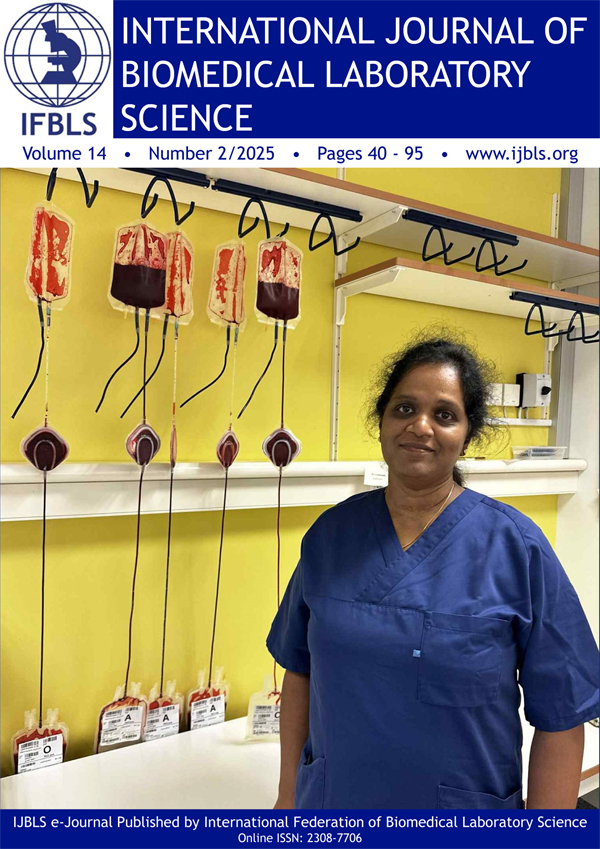Abstract
Malaria infection and its treatment with antimalaria drugs have been reported to generate oxygen free radicals. These free radicals generated in the cause of infection and its treatment need to be removed from the body by reducing agents called antioxidants. This study is aimed at evaluating the impact of malaria infection on total antioxidant status of children. By using standard procedures
and kits purchased from Randox laboratories, USA and Quimica Clinica Aplicada Spain, total antioxidant level, vitamin C, Total and HDL cholesterol and albumin were assessed in 122 malaria infected children. The haemoglobin and parasite density status of the children were also measured. Sixty healthy children were used as controls. It was observed that all parameters measured except the total cholesterol (which was similar in both malaria infected children and the control
subjects), were significantly lower in malaria infected children when compared with the respective control values. Malaria parasitemia correlated strongly and negatively with total antioxidant levels (r= 0.-432).Reduction in the level of total antioxidant was dependent on the severity of malaria hence the more severe the malaria, the lower the level of total antioxidant. From this study it is observed that there is a general depression in total antioxidant levels as well as HDL Cholesterol, albumin and vitamin C levels suggesting increased consumption of antioxidants and its agents during malaria infection. Therefore, antioxidant intervention may be crucial in the treatment of malaria infection.
Key words: Antioxidant status, P. Falciparum infection, malaria, Vitamin C
Total Antioxidant Status and other Antioxidant Agent Levels in Children with P.Falciparum Infection in Calabar, Nigeria



